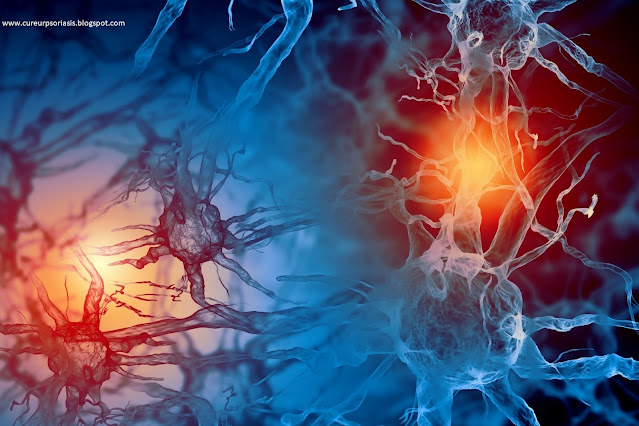Genital Psoriasis
Genital Psoriasis
Symptoms, Causes, and Treatment of a Sensitive Condition, Genital Psoriasis
Introduction
Genital psoriasis is a specific form of psoriasis that affects the genital area. It is a chronic skin condition characterized by redness, inflammation, and scaling of the skin in the genital region. Genital psoriasis can be distressing and uncomfortable, impacting both physical and emotional well-being. In this article, we will provide a comprehensive overview of genital psoriasis, including its symptoms, causes, triggers, and available treatment options.
I. Understanding Genital Psoriasis
 Genital psoriasis refers to the presence of psoriasis symptoms specifically in the genital area. It can affect both men and women, causing discomfort and sensitivity in a particularly sensitive region of the body. Genital psoriasis may occur as an isolated condition or in conjunction with psoriasis in other parts of the body.
Genital psoriasis refers to the presence of psoriasis symptoms specifically in the genital area. It can affect both men and women, causing discomfort and sensitivity in a particularly sensitive region of the body. Genital psoriasis may occur as an isolated condition or in conjunction with psoriasis in other parts of the body.The symptoms of genital psoriasis can vary from person to person but often include redness, inflammation, itching, and scaling of the skin in the genital area. The skin may appear dry, cracked, or even develop small pinpoint bleeding spots. In some cases, genital psoriasis can also affect the surrounding areas, such as the buttocks, inner thighs, and pubic area.
II. Causes and Triggers of Genital Psoriasis
The exact cause of genital psoriasis is not fully understood. However, it is believed to be related to the same underlying factors as other forms of psoriasis. These factors include genetic predisposition and an overactive immune system that mistakenly attacks healthy skin cells. Certain triggers can exacerbate or activate genital psoriasis, including:
1. Friction and Irritation: The friction caused by tight clothing, sexual activity, or excessive sweating can trigger or worsen genital psoriasis symptoms.
2. Infections: Infections, particularly yeast or fungal infections, can lead to flare-ups of genital psoriasis. Treating the underlying infection is important to manage symptoms effectively.
3. Hormonal Changes: Hormonal fluctuations, such as those occurring during pregnancy or menopause, can influence the onset or severity of genital psoriasis.
4. Stress: Emotional stress or psychological factors can trigger or worsen psoriasis symptoms, including genital psoriasis. Stress management techniques can help reduce the frequency and severity of flare-ups.
III. Treatment Options for Genital Psoriasis
Treating genital psoriasis requires a gentle approach to avoid further irritation to the sensitive skin in the genital area. The treatment options aim to relieve symptoms, reduce inflammation, and improve quality of life. Here are some common treatment approaches for genital psoriasis:
1. Topical Treatments: Topical corticosteroids, vitamin D analogs, or calcineurin inhibitors may be prescribed to alleviate inflammation, itching, and scaling. It is important to use these medications as directed and only on the affected areas to avoid potential side effects.
2. Moisturizers and Emollients: Regularly applying moisturizers or emollients to the genital area can help keep the skin hydrated, reduce dryness, and minimize discomfort.
3. Avoiding Irritants: It is important to avoid potential irritants, such as perfumed soaps, tight clothing, or harsh chemicals that may aggravate the genital psoriasis symptoms. Opting for mild, fragrance-free products and loose-fitting clothing can help prevent further irritation.
4. Phototherapy: In some cases, light therapy or phototherapy may be used to treat genital psoriasis. Controlled exposure to ultraviolet light can help reduce inflammation and manage symptoms. However, this approach should be carefully monitored and administered by a healthcare professional.
5. Systemic Medications: In more severe cases of genital psoriasis, systemic medications, such as oral retinoids, immunosuppressants, or biologic agents, may be prescribed. These medications work by modulating the immune system and reducing inflammation throughout the body.
6. Emotional Support and Counseling: Living with genital psoriasis can be emotionally challenging. Seeking support from healthcare professionals, support groups, or counseling services can help individuals cope with the psychological impact of the condition.
Conclusion
Genital psoriasis is a chronic skin condition that affects the genital area, causing discomfort and sensitivity. While it may be distressing, various treatment options are available to manage symptoms and improve quality of life. It is important for individuals with genital psoriasis to work closely with healthcare professionals to develop a personalized treatment plan that addresses their specific needs. By understanding the symptoms, triggers, and available treatment options for genital psoriasis, individuals can take an active role in managing their condition and finding relief. Seeking emotional support and maintaining good self-care practices can also contribute to overall well-being while living with genital psoriasis.
















Comments
Post a Comment